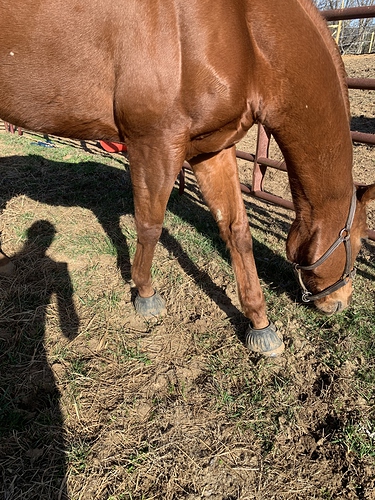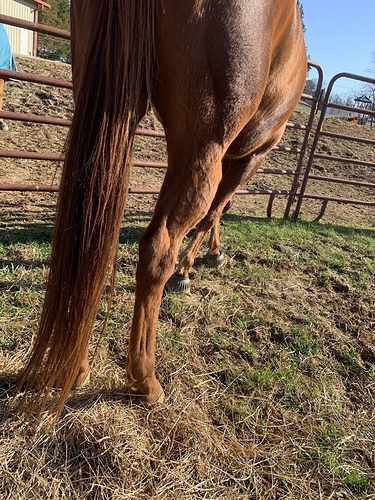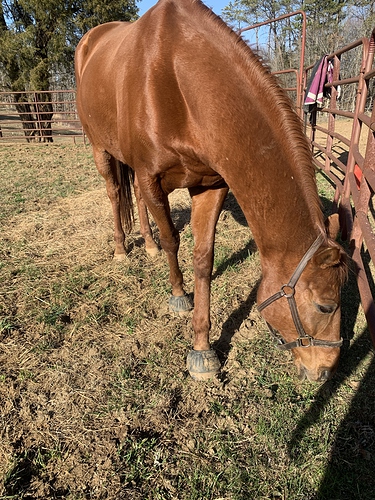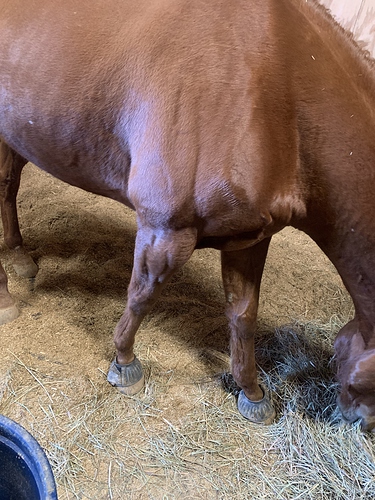Long story short, Mr NQR needs more than a piecemeal approach from local vets who rarely get past the “look at him in the cross ties and ask if we’ve scoped him recently” part of investigation. A valid concern, but there’s more to him than ulcers (biggest evidence: a dramatic improvement on gabapentin and a dramatic regression off of it). Off to the vet school we go soon, but I know this horse and he’s the master of having a mental breakdown if he has to haul and it covers up his “weirdness”. Hence the collection of pics and videos in my phone.
Anyways, this horse grazes like this about 90% of the time and I’m wondering if this is a red flag or just him:
This is the horse with the stubby toes and tripping issues, as well as KS and now some funkiness behind that I’m unsure is “just” lack of fitness.
Normal? Yellow flag? Glaring red flag?




 that grazing stance is weird
that grazing stance is weird  I’m a digital everything person.
I’m a digital everything person.
